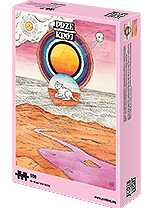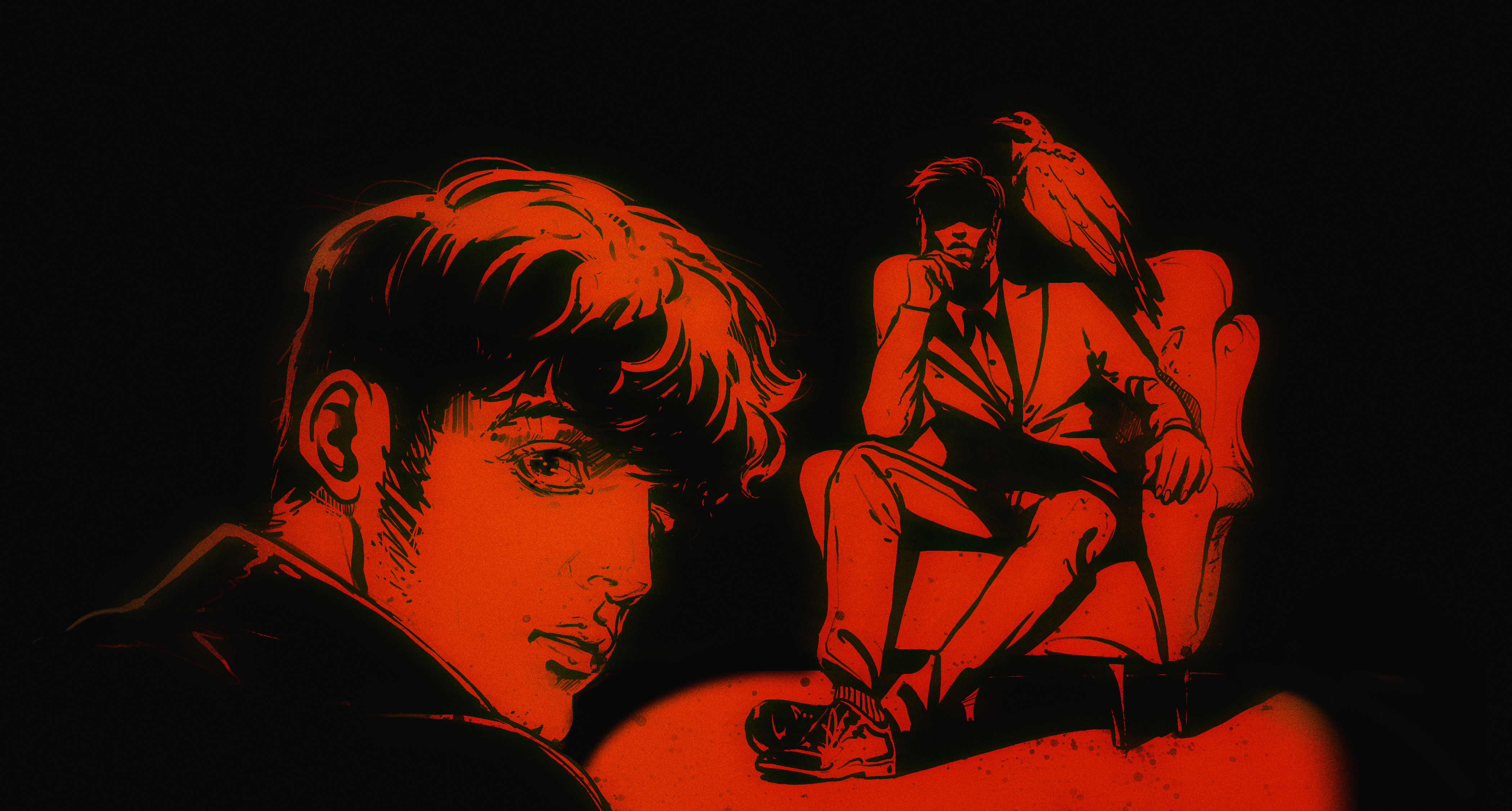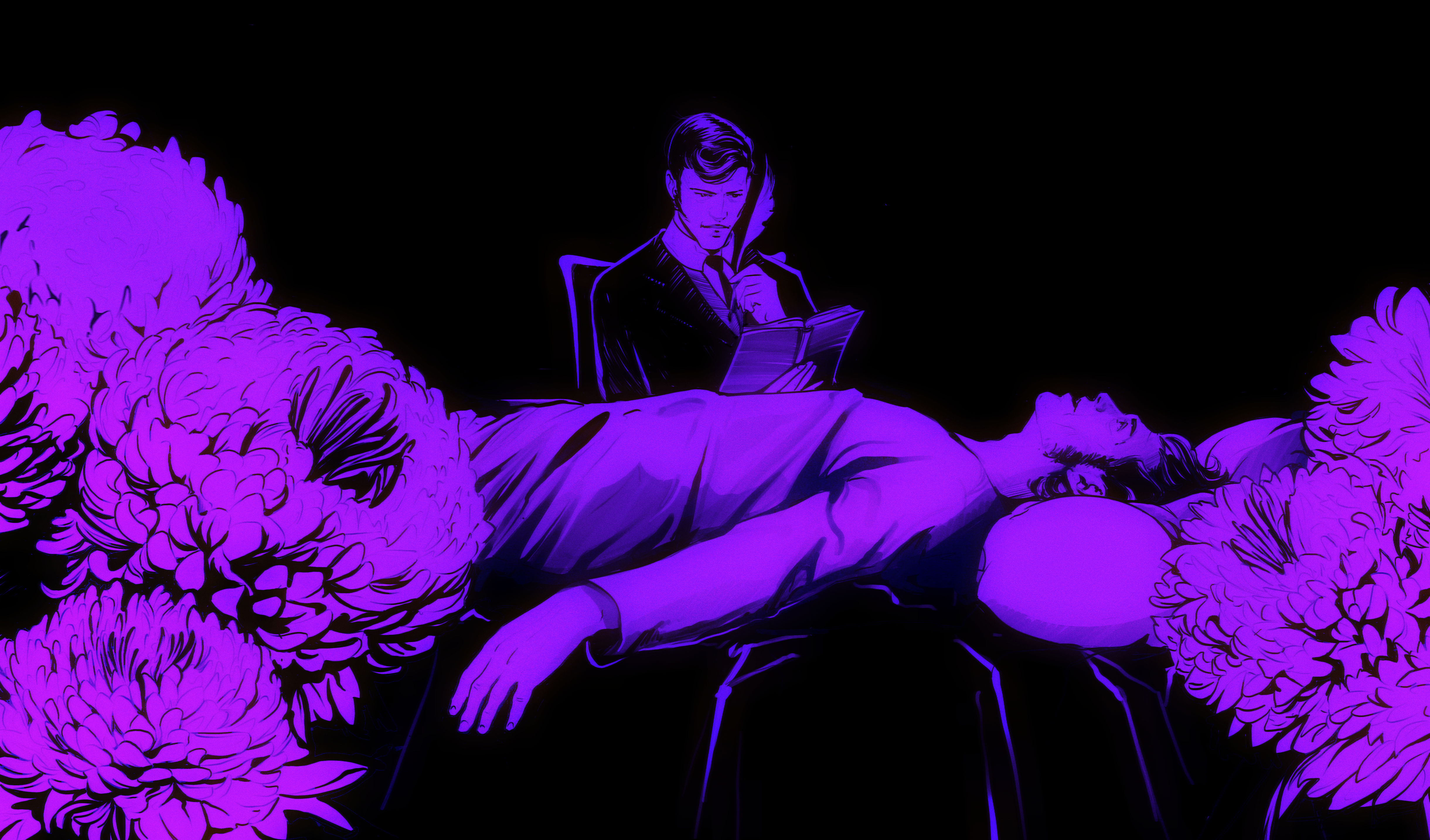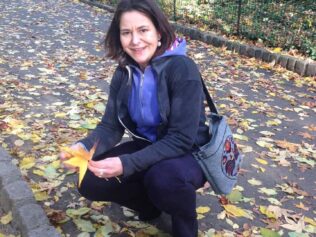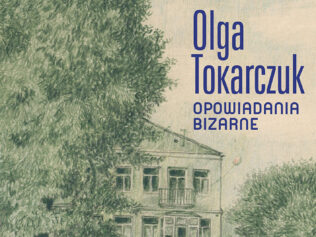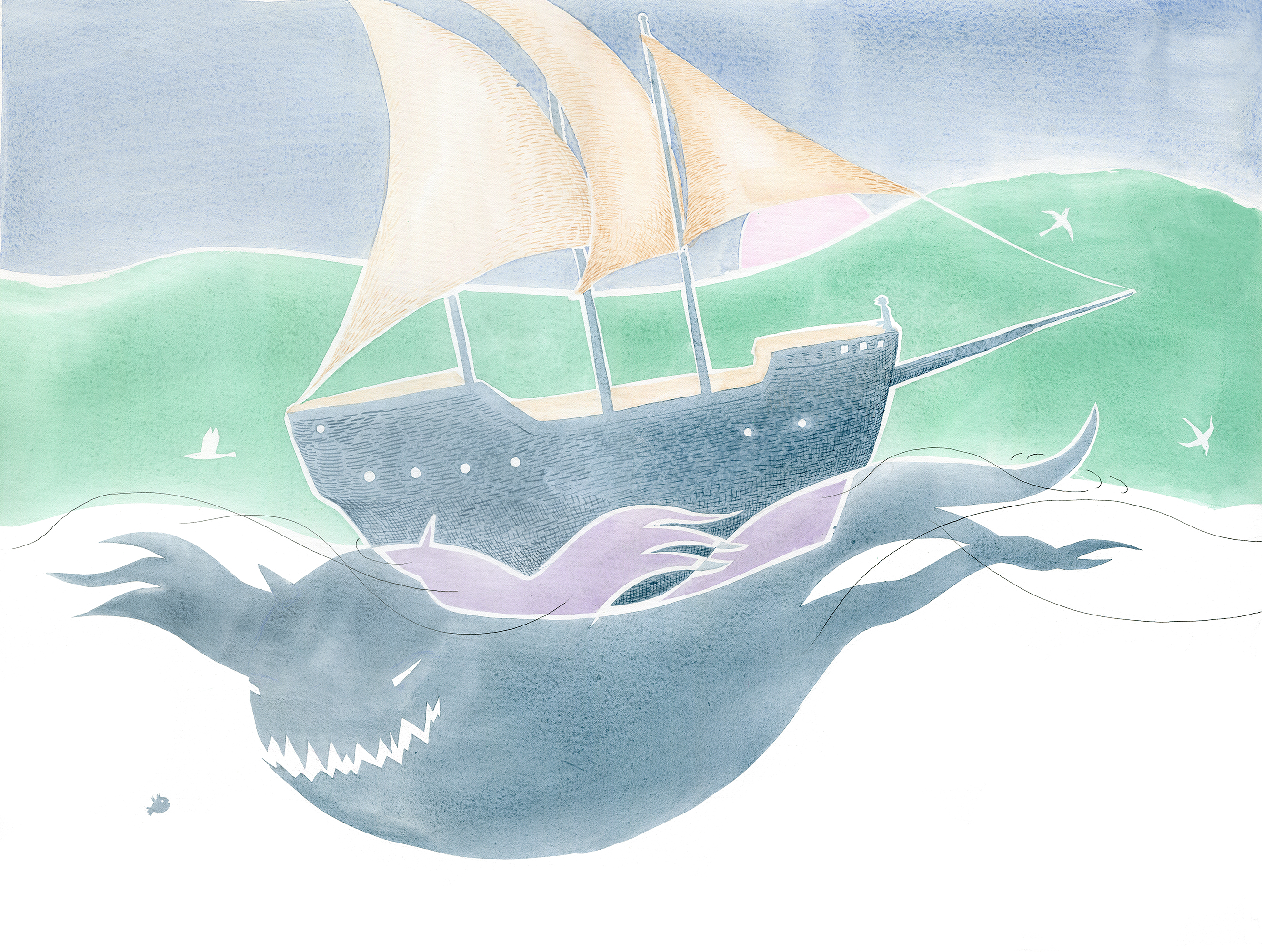
In the Valdemar Questionnaire, we give voice to translators who reflect on their work and role as intermediaries between languages and cultures. In this instalment of our series, Valdemar takes on Marek Kazmierski, a translator of Polish and author of the featured translation of the chapter “This Fable Along with Others” from the book Professor Inkblot’s Academy by Jan Brzechwa.
You can read Marek’s translation of the excerpt from Jan Brzechwa’s “Professor Inkblot’s Academy” here.
How and why did you become a translator of Polish literature?
Thrilled by the short stories found at the back of Andrzej Stasiuk’s Dukla (a lovely book of his literary ruminations), I just sat down, translated and sent them to the author some 15 years ago. Stasiuk referred me to his German publisher, who owned the rights to all of his works… they never got back to me.
Do you ever regret becoming a translator? (Valdemar wants to know…)
Every time I see news reports about how much professional sportspeople earn, how many more billionaires the world has today compared to yesterday, I kick myself time and time again… Then I go for a walk, and remember that the experience of interacting with minds such as Tuwim, Ginczanka, Szymborska, Brzechwa, Młynarski, Osiecka, Kofta, Mickiewicz and so many more (I have translated over 100 Polish authors over the past decade) through their writings is the greatest adventure I could ever possibly imagine living. There is no money in it, but the love I feel for the process of translating Polish poems, songs and stories into English is a rich reward.
How did you come to translate Jan Brzechwa’s Akademia Pana Kleksa into Professor Inkblot’s Academy of Wonders?
It was my favourite childhood read – an essential thing in communist-era Poland, where there was nothing on TV and no toys in shops – but I forgot all about it after moving to England in 1985. Then, when I moved back to Poland from England in 2015, I discovered it had never been translated into English (though it is available in many other languages) and decided to do something about it.
Do you remember your first encounter with this book?
Growing up in an old villa in Żoliborz in Warsaw, I remember to this day wishing I could one day attend such an academy, could learn how to fly like Adaś Niezgódka (the central protagonist) manages to, could travel the world like Professor Inkblot does in later books, far from the grey and oppressive misery that was Poland in the 1980s.
What do you like most in this book?
I have been a teacher since 1999, and I still can’t believe that we continue putting our precious little offspring through stifling educational formats – teacher at the front of a class, students learning from old textbooks, their childhoods tied to a cycle of classrooms and homework assignments… The fact that Jan Brzechwa – writing it during World War II, trying to survive the terror that was the Warsaw Uprising of 1944 – wrote such a great story celebrating creative and open-minded forms of teaching through discovery delights me to this very day. The diverse and complex characters, the fact that the book is not set in Poland, in no country at all – all these universal themes, referencing so many fairy tales and fantasy characters from world literature – makes this set of three fantastic novels very special in a very objective sense.
What was the most difficult thing about translating the Academy?
Oh, it was a joy from start to finish. I started on a flight from Warsaw to Toronto and then continued on a small island on Georgian Bay in Ontario, Canada – 27 days later, as my return flight was approaching Warsaw, I managed to translate the closing sentence. Once I had made it out to luggage collection, my laptop cooling fan died and the computer refused to work. I was worried I had lost the whole thing, but it turned out the translation survived and today I am still writing on that same rugged and oft-repaired laptop.
What part of your job do you like most?
Each translation is like a sheer rockface – I see it, I know it can be conquered, I just have to find ways to get over the top, work out the holds, the places which will test my skills, the danger zones – then I get started and climb on, thrilled to find that once the translation is done, the view from the top is often brilliant – that’s how it feels when I get a Żulczyk, Masłowska, Tuwim or Ginczanka translation right…
What part do you hate most?
‘Hate’ is a word Polish people overuse all the time, along with po prostu (‘basically’). I always feel privileged when confronting a new text, no matter how hard or dull it might be. The sense of excitement, the puzzle involved and the hope of finding the treasure at the heart of the process – there’s no feeling like it.
What would you compare the act of translation to?
Writing is hard work. I have written several books and dozens of stories and plays, and it always feels as painful as I imagine giving birth inevitably is. Translating is like dancing and making love – you meet the text, you flirt with it, you get to know it inside and out, and then you slide up next to it and, lying side-by-side, make what hopefully feels like ‘beautiful music’ at the end. Because the writer has done all the hard work of creating a text in the first place, the translation is much more straightforward – not easier, just simpler – the source text is there, you just have to seduce and get it to dance with you and then make a new work of art from it – which is the translation. Yes, Valdemar – translation is like sex… sometimes good, sometimes bad, at times producing new translated works of life we call ‘art’.
Do you sometimes feel like a medium? (Valdemar wants to know…)
No, Valdi, no such lame metaphors fit. I am a scientist and an artist – I must crack the code in the original, work out what and how and why the author was saying in Polish – and then discover the best way of repeating it in English. So I feel more like a detective, a Sherlock Holmes trying to crack a complex case. A wonderful feeling, emerging from a very precise and very passionate process.
What is the book you would like to translate most?
A book of the greatest popular songs ever written in Polish, and also a collection of fables from all over Poland – Polish songwriters and folk storytellers are international treasures we must share with the world, as soon as super-humanly possible.
What is your next translation project?
Our Great Book Of Poland – 2020 poems and songs, translated by me, ready to launch upon the world in 2020. The book is done, I am just working on preparing it for publication as e-books, mini-movies, a stage show and educational materials. You can read more about the project here.
What is your favourite occupation (translation excluded)?
Writing, teaching and modifying old motorcycles – my perfect day would involve writing, translating, teaching and then working on old Kawasakis and Harley Davidsons and riding off into the night, the mind racing, the bike beneath me purring gently…
What is your idea of a translator’s perfect happiness?
When readers say, “It makes me feel the way the original did…”, especially when it comes to popular songs and poems for children. Giving people the same thrill in English that they feel listening to songs and poems in Polish, seeing the joy doubled, is magic.
What is the quality you most like in a translation?
I detest translations which do not follow the rhyme and rhythm structures in the Polish originals. If the author strived and struggled to add rhythm and rhyme to their verses, it is the translator’s task to be true to that decision – and not make excuses for omitting it from their often lacklustre ‘adaptations’.
Who is your favourite fictional hero in Polish literature?
Janosik, I guess… A real nice match for our English Robin Hood, a flawed hero, anti-hero of sorts. And then there is Kuba, of course – the central protagonist of Jakub Żulczyk’s genius novel Blinded By the Lights (Ślepnąć Od Świateł), which I translated right after I finished translating Professor Inkblot’s Academy in 2018, and which was recently published by Legend Press in the UK as a paperback/e-book and as an audiobook by Dreamscape Media in the US. Last but far from least, there is Professor Ambrose Inkblot (Pan Ambroży Kleks), the hero of my newest translation. There you have three complex, conflicted and very Slavonic protagonists to enjoy wrestling with in the pages of so many priceless books.
Is there any author you are afraid of (translating)? (Valdemar wants to know…)
Well yes, there are several, but they are all alive and well and I would rather not say in case they come after me with their poisoned quills and chase me out of town and trade… The one thing I have learned translating the likes of Tokarczuk, Dehnel, Masłowska, Kapela, Fiedorczuk, Amiel, Grzegorzewska and many many more: Poles are perfectionists and so working with living authors on translations is always a curious challenge.
If you were to die and come back as a person (but not a translator) or a thing, what would it be? (Valdemar wants to know…)
A falcon flying over the Czersk valley close to my new home in Góra Kalwaria, Piaseczno County near Warsaw, on the shores of the wild Vistula river. The variety of trees and wildlife, the birdsong from morning till night, the skies which always stun me with their beauty here – I would like to soar high among all that, hunting vermin for food, dancing with winds clashing from Europe and Asia in the heart of my homeland… Yes, that would be a pleasant way to be reincarnated – watching over this amazing territory I was born and bred but not raised in (I was 12 when my family moved to England), following its future evolution…
Marek Kazmierski:
Born in Poland, raised in England. Writer, actor, author, translator, film-maker and visual artist. Winner of the Penguin Decibel Prize and Bike Philosopher of the Year Award in the UK, trustee of the Griffin Trust For Excellence in Poetry in Canada, and creator of Our Great Book Of Poland 2020 – the largest collection of translated poetry in the world.

